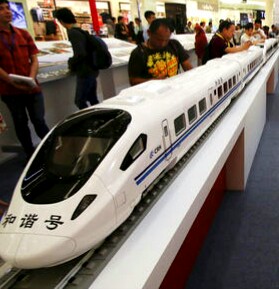Beijings infrastructure push clouded by project delays and mounting debt.
BangkaNews.ID Jakarta - In the middle of a tea plantation outside Bandung, Indonesias third-largest city, sits the future site of one of the four stations on the countrys first high-speed railway, Wed, 28/03.
The railway is one of two ongoing projects under the BRI in Indonesia. Launched in January 2016, the planned 142km railway that will connect Jakarta and Bandung was supposed to illustrate Chinas expanding economic power and influence. But as of late February, local officials said only 10% of the work had been completed, making it impossible for operations to start next year as scheduled. A funding crunch is also starting to raise concerns over the financial health of Indonesian companies involved.
"After the project launch, there was almost no activity besides the land being cleared," said local villager Asep, as he looked over the construction site at the Walini tea plantation. "No rail tracks. Nothing. Work only restarted around three months ago, for the underground tunnel."
Paperwork and permit problems halted the project in its first several months, after which land acquisition proved to be a major headache. Only half of total land needed has been secured. Rising land prices during the delays is partially responsible for the projects growing price tag -- from $5.5 billion when it was announced to $6 billion, As taken from the Asian Nikkei Review.
Sluggish land acquisition has had other consequences: China Development Bank, which agreed to cover 75% of the cost with loans, has repeatedly delayed disbursement, further hampering progress.
"The CDB will [start] loan disbursement this month," Chief Maritime Minister Luhut Panjaitan, whose office oversees joint Belt and Road projects with China, said on March 9. But since the bank signed the loan agreement during the BRI forum in Beijing last May, deadlines for distributing the money have been pushed back time and again.
Analysts say it is unlikely China will cancel its funding given Indonesias strategic importance as Southeast Asias largest economy. But some think China has other, more pressing, priorities.
"[High-speed railway] in Java island is an investment that could wait, as China has more immediate incentives to strengthen its trade routes in its neighboring countries first that are not separated by seas," brokerage Reliance Sekuritas Indonesia said in a note.
The second active BRI project in Indonesia is the Morowali Industrial Park on Sulawesi island. The island already hosts Chinese nickel smelters and a stainless steel factory. A $1.6 billion deal was signed in Beijing last year that includes the construction of a carbon steel factory and a power plant. Additionally, Indonesias Investment Coordinating Board has designated three provinces -- North Sulawesi, North Kalimantan and North Sumatra -- for BRI investment. Future plans include the development of new industrial parks, ports, airports and tourism.
Despite the delayed railway construction, Indonesia continues to have high hopes that BRI will help cover the funding gap in President Joko Widodos $355 billion infrastructure drive.(*)
source : asian nikkei review
GO YAMADA, Nikkei senior deputy editor
STEFANIA PALMA, Asia editor at The Banker









Komentar Anda